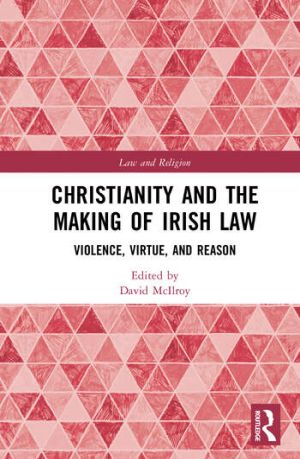
For almost two millennia, the island of Ireland has continued to have an impact on European and English-speaking Christianity and culture out of all proportion to its size and position.
This volume looks at key Irish figures, beyond lawyers and judges, whose ideas have impacted on the way law is conceived, conceptualised, and practised. The work consists of four Parts, each corresponding to a distinct historical phase. During the Early Mediaeval Period, Christian influence was both visible in Ireland’s brehon legal system and in the treatises which Irish monks wrote on subjects such as the law of war and how to rule as a Christian prince. In the post-mediaeval period, the Protestant Ascendancy required defenders of the new settlement, whose ideas would have ramifications for the colonisation of the New World. We also find Ireland producing thinkers of international stature such as Archbishop James Ussher, Bishop George Berkeley and Edmund Burke, who set a trend of Irish influence throughout the English-speaking world. The struggle for independence in the nineteenth and early twentieth century produced the towering figures of Daniel O’Connell, Edward Carson and Eamon de Valera as well as Patrick Pearse, the lodestar of the Easter Rising in 1916. In the twentieth century, great Irishmen and women who influenced English-speaking culture include C.S. Lewis, James Joyce, Richard O’Sullivan KC and Herbert McCabe. They show the enduring importance of a commitment to reason and a desire for virtue against the backdrop of the conflicts, both domestic and international, which impacted Ireland. With contributions drawn from Irish, British, and North American scholars and lawyers, the diversity of international and methodological perspectives is a key strength of the volume.
The book will appeal to scholars, lawyers, and students interested in the history of ideas, the interplay between religion and law, and Ireland as a place of contestation, experimentation, and generation of new ideas.